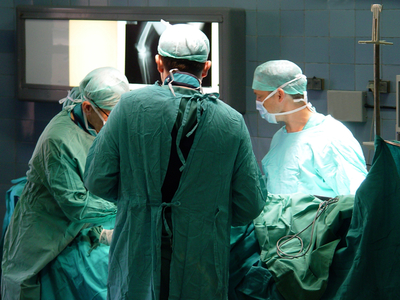Complex cancer treatment to be concentrated in fewer hospitals

Complex cancer and artery treatment at Dutch hospitals is being reformed, and only hospitals with sufficient expertise will be able to carry out 18 specific operations from next year.
The plan has been worked out in talks between patient organisations, healthcare providers, insurance companies, and government officials with the aim of ensuring patients get the best possible care.
“By concentrating care in certain hospitals, everyone in the Netherlands will have the best chance of survival and quality of life, and this is something that patient organisations have been campaigning for for years,” said Anke Vervoord, head of the Dutch federation of cancer patient organisations.
The new approach will affect head and neck cancers, pancreatic cancer, lung cancer, stomach and intestinal cancer, and kidney cancer, as well as aortic aneurysms and narrowed carotid arteries.
The new system will mean some patients have to travel further for their operations, because some hospitals will no longer be allowed to carry out certain treatments.
Currently, hospitals have to carry out 20 lung removals a year, but that will increase to 60, the Volkskrant said. In total, 33 of the 48 hospitals that carry out complex kidney cancer treatment will not meet the new standards.
Changes are necessary, professor Rob Tollenaar from Leiden University and chairman of the discussions, told the paper. “We need to set up healthcare differently if we want to make it accessible to everyone. By concentrating complicated treatment in fewer hospitals, the teams will deliver better work.”
And that means more time and space for other treatments in the remaining hospitals, he said. “Think intestinal issues that are not related to cancer, or benign gynaecological conditions—complaints which currently have long waiting lists.”
Last year it emerged that outcomes for treatments for illnesses such as cancer and lung disease COPD vary wildly between hospitals but patients still have no way of finding out which hospital performs best, despite a law that should allow patients to make an informed choice.
Thank you for donating to DutchNews.nl.
We could not provide the Dutch News service, and keep it free of charge, without the generous support of our readers. Your donations allow us to report on issues you tell us matter, and provide you with a summary of the most important Dutch news each day.
Make a donation